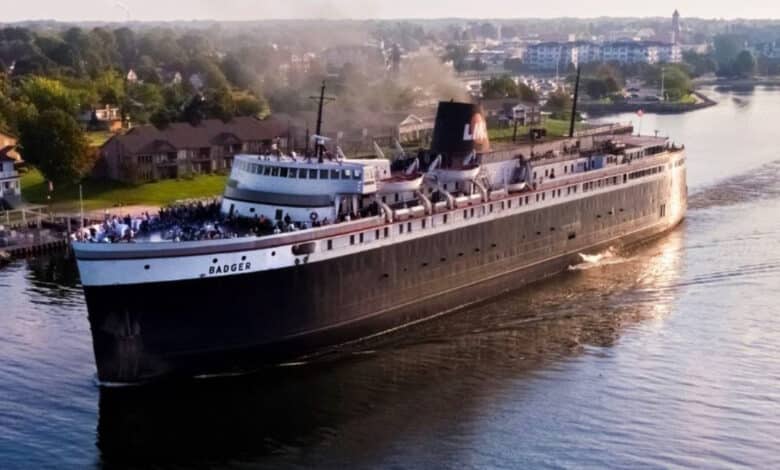Riviera – News Content Hub

The grant was issued by MARAD to Lake Michigan Carferry to support a zero-emissions, carbon capture feasibility analysis to convert 71-year-old SS Badger from a coal-fired steamship to a zero-emissions ferry vessel. The last coal-powered freight and passenger ferry in the US, SS Badger has two Skinner Unaflow four-cylinder steam engines rated at 2,600 kW each at 125 rpm, and four Foster-Wheeler D-type coal-fired boilers.
Onboard carbon capture is in its earliest stages of development and deployment as a means of reducing CO2 emissions from shipping. Additionally, developments are underway around the entire carbon capture value chain.
Last year, SS Badger’s route across Lake Michigan between Ludington, Michigan and Manitowoc, Wisconsin was designated by MARAD, part of the US Department of Transportation, as a Marine Highway route, the Lake Michigan M-90 Marine Highway. The ferry itself was designated a National Historic Landmark in 1992.
The ferry carries three types of freight: traditional semi-trailers, oversized loads, and project cargo. By using the ferry, truck drivers can avoid a 563-km trip through Chicago on the heavily congested I-90. Besides oversized trucks, 600-passenger, 180-vehicle SS Badger transports cars, recreational vehicles, motorhomes, motorcycles, and other vehicles, making about 450 crossings annually. The 97-km trip takes about four hours.
This past summer operating season, Lake Michigan Carferry halted service due to damage to the ferry’s ramp system to undertake extensive repairs. Plans call for the cross-lake service to resume in 2024.
Source link
